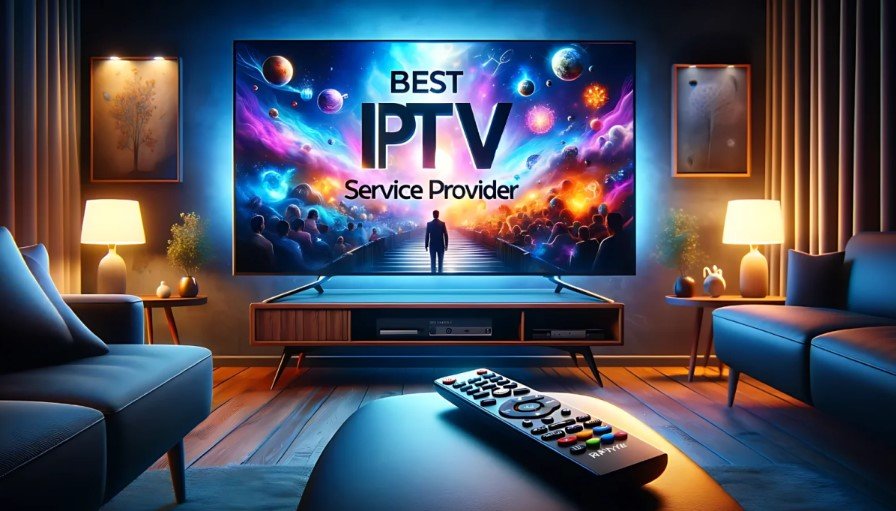As technology continues to evolve, so too does the way we consume media. The transition from traditional cable services to innovative alternatives like IPTV reflects this shift in consumer preferences and technological advancements. With the increasing availability of high-speed internet, many people find themselves at a crossroads when deciding between sticking with their usual cable provider or making the switch to IPTV. Understanding the key differences, advantages, and disadvantages of each option is essential for making an informed choice tailored to your viewing habits and lifestyle.
What is IPTV?
IPTV, or Internet Protocol Television, delivers television programming through the internet instead of traditional satellite or cable methods. This type of service allows users to stream content on various devices, including smartphones, tablets, smart TVs, and computers, leveraging high-speed broadband connections. One of the standout features of IPTV is its flexibility; viewers can access live broadcasts, on-demand content, and even interactive features that enhance the viewing experience.
Traditional Cable: A Time-Tested Choice
Traditional cable services have been the go-to option for TV viewing for decades. This method relies on coaxial or fiber-optic cables to transmit signals directly to users’ homes. Cable providers typically offer a broad range of channels, including local networks, premium channels, and specialty content. Additionally, traditional cable offers reliable service with established customer support, making it a familiar choice for many households. However, customers often find themselves at the mercy of rigid packages and pricing structures dictated by their providers.
Advantages of IPTV
Flexibility and Convenience
One of the most significant advantages of IPTV is its flexibility. With IPTV, viewers can watch their favorite shows and films on their own schedule. This on-demand capability allows subscribers to pause, rewind, or replay content as desired. The service also frequently comes with multi-device support, letting users watch their chosen content on various screens, which is perfect for families with different viewing preferences.
Cost-Effective Solutions
IPTV can often be more affordable than traditional cable, with many providers offering various pricing tiers or subscription models. Users can tailor their packages based on their viewing habits, allowing for a customized and budget-friendly experience. Additionally, many IPTV services come without the multitude of fees typically associated with traditional cable, such as equipment rental and installation costs.
Innovative Features
Many IPTV services come equipped with features such as digital video recording (DVR), which allows users to store and access their favourite shows at their convenience. Moreover, IPTV services often embrace the latest technological innovations, providing interactive interfaces and options like video on demand (VOD). These modern features can significantly enhance the overall user experience, catering to the evolving needs of viewers.
Drawbacks of IPTV
Dependence on Internet Quality
While IPTV offers numerous benefits, its reliance on high-speed internet can be a drawback. Viewers in areas with slow or inconsistent internet connections may experience buffering or interruptions, detracting from the viewing experience. Users must ensure they have a capable internet connection to enjoy IPTV services fully.
Potential for Channel Limitations
Although many IPTV providers offer diverse channel selections, some may not have access to specific local or premium channels found in traditional cable packages. Users should carefully review channel offerings before making the switch to ensure they can access their preferred content.
Advantages of Traditional Cable
Reliable Service
One of the most notable advantages of traditional cable is its reliability. Cable signals are less affected by internet outages or slow connections, ensuring a more consistent viewing experience without interruptions. For those who prioritize uninterrupted access, especially during live broadcasts like sports events, traditional cable may be the better choice.
Comprehensive Local Coverage
Traditional cable services typically provide excellent local coverage, ensuring access to regional news, weather, and sports programming. This feature is vital for viewers who rely on local content and want to stay connected to their community.
Familiarity and Customer Support
For individuals who are accustomed to traditional cable, sticking with what they know can be comforting. Established providers often have existing customer service systems in place to handle inquiries and issues quickly. This familiarity can provide peace of mind for less tech-savvy viewers.
Drawbacks of Traditional Cable
Higher Costs
One of the most significant drawbacks of traditional cable services is the relatively high cost. Many consumers find themselves paying for a plethora of channels they don’t watch, resulting in inflated bills. Furthermore, numerous hidden fees for equipment rentals, installation, and service upgrades can add to the overall expense.
Limited Flexibility
Traditional cable packages often come with rigid contracts and limited customization options. Viewers may find themselves locked into packages that don’t align with their viewing preferences, making it challenging to modify services when needs or interests change.
Making the Right Choice
The decision between IPTV and traditional cable ultimately hinges on your viewing habits and preferences. If you enjoy flexibility, on-demand content, and potentially lower costs, IPTV may be the right fit. Conversely, if you value reliability, comprehensive local coverage, and a more familiar service structure, traditional cable could be the better option.
Before making a choice, it’s advisable to assess your internet speed, evaluate the range of channels required, and compare costs and service features. Many providers offer free trials or promotional packages, enabling you to test the service and determine if it suits your lifestyle.
Ultimately, understanding your unique viewing needs will guide you in selecting the television service that best meets your expectations, ensuring that your entertainment experience is both satisfying and enriching. So, it is essential to carefully consider the pros and cons of both IPTV and traditional cable before making a decision. With the rise of streaming services and innovative viewing options, there has never been a better time to explore your television service choices. So, whether you choose IPTV or traditional cable, sit back, relax, and enjoy your favorite shows and movies in the comfort of your own home. Happy viewing!
